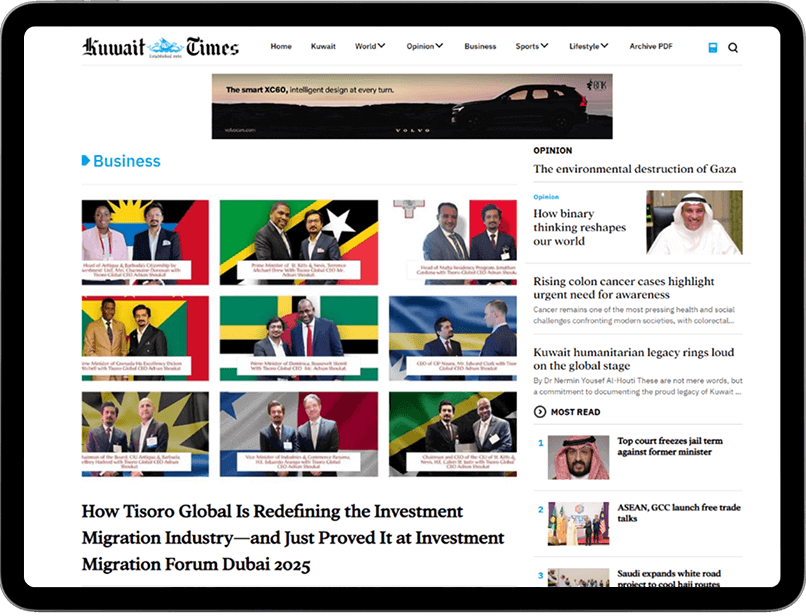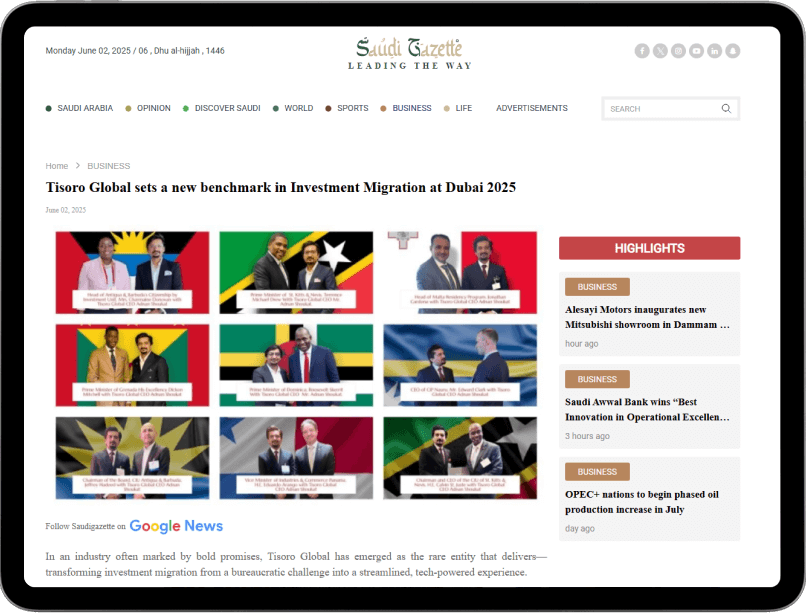Every year an increasing number of Nigerians flee poverty and unrest at home. Now, rich Nigerians are planning their escape too. And they’re taking their money with them.
Dapo has spent too long at home in Lagos, Nigeria. Back in October, protests against the SARS police unit kept him from going to his office. “First, we were told to stay at home because of the coronavirus. Then this,” he says.
A wealthy Nigerian, Dapo, who is in his late 30s, does not want to make himself identifiable by giving his surname and age, lest it draw unwanted attention.
He has had a “backup plan” for getting out of Nigeria for some time, he says. “I have Maltese citizenship. I can leave for there any time.” With one small obstacle – a 14-day quarantine upon arrival – Dapo could be permanently in Malta any time he pleases. He is not planning to go imminently, but describes it as his “plan b’’.
Dapo is one of a rapidly growing number of Nigerians who have bought so-called “golden visas” or foreign citizenships-by-investment this year. In his case it was Malta, the Mediterranean island where citizenship can be acquired for a minimum investment of 800,000 euros ($947,180) through the Malta Citizenship by Investment Programme.
Not that he has any special love for Malta. A record 92 countries around the world now allow wealthy individuals to become residents or citizens in return for a fee, sometimes as low as $100,000 but often several million dollars. It is billed as a “win-win”: The country gets much-needed foreign investment and, in return, the new citizens have new passports that open up more of the world to travel or live in.
Golden visas are the lesser-reported side of the Nigerian migration story. Every year thousands of Nigerians make their way to Europe via perilous crossings over the Sahara and Mediterranean. Now their wealthier counterparts are also making their way to Europe but via a different route.
A Record Year For Golden Visas
Whether rich or poor, the reasons for leaving one’s home country are often the same. Fear of political uncertainty at home and hope for better opportunities elsewhere. But 2020 has been exceptional.
Like Dapo, Folajimi Kuti, 50, was watching the #EndSARS protests from his home in Lagos in October. “I have children, they’re teenagers, and they’re asking me questions like, ‘How did we get here?’” he says, referring to the violence that accompanied demonstrations against the controversial Special Anti-Robbery Squad (SARS).
Kuti says he has believed for some time that social unrest would boil over in Nigeria, because of issues of poverty and police brutality. “It had been clear for the past two or three years that something was going to happen. It’s happened now in 2020 but, frankly, we’ve been expecting this outburst for a while so it wasn’t a matter of ‘if’. It was a matter of ‘when’.”
Citizenship or residency abroad has become appealing, he adds. As a financial adviser to the wealthy, Kuti knows the process of applying for one having walked clients through it before. Most of his work involves advising Nigeria’s growing number of millionaires about investments and wealth planning. But now they are asking about foreign citizenships and Kuti himself is tempted by the idea. “Just knowing that if you need to go you certainly could and move without any restriction.”
The rush for golden visas among rich Nigerians started before October’s SARS protests. At London-based Henley & Partners, one of the world’s largest citizenship advisory firms, applications by Nigerians increased by 185 percent during the eight months to September 2020, making them the second-largest nationality to apply for such schemes after Indians.
More than 1,000 Nigerians have enquired about the citizenship of another country through Henley & Partners this year alone, which Paddy Blewer, head of marketing, says “is unheard of. We’ve never had this many people contacting us”.
Many, like Kuti, saw political problems ahead and wanted an escape plan. Others were focused on coronavirus: What if the pandemic overwhelms Nigeria?
“There is a lack of primary healthcare capacity that would be able to manage with either a second wave or whatever happens in, say, 2025,” says Blewer. “Let’s say there is COVID-21 still going on in 2025 that is of an order or magnitude worse. It’s, ‘Do I want to be based here and only based here, or do I want an alternative base of operations where I believe I will be safer and I will be able to run my global businesses’.
It was in July, when the number of COVID-19 cases in Nigeria escalated, that wealthy Nigerians started looking more seriously at citizenship abroad, experts say. “Those with medical conditions that could not fly out – a lot of them are buying passports just because if there is any problem they can fly out,” says Olusegun Paul Andrew, 56, a Nigerian entrepreneur and investor who spends much of the year in the Netherlands.
“Flying out” of Nigeria is hard and not just because of the coronavirus pandemic. Just 26 countries allow Nigerian passport holders visa-free entry, many of them part of West Africa’s ECOWAS arrangement. Both the United Kingdom and Europe’s Schengen zone require Nigerians to obtain visas ahead of travelling.
For the wealthy, this is too much hassle. “They don’t want to be queueing for visas for any EU country or whatever,” says Andrew. Instead, why not purchase the citizenship of a country with visa-free access to Europe?
To Europe, via the Caribbean
Bimpe, a wealthy Nigerian who also does not wish to give her full name, has three passports. One Nigerian, which she says she never uses, and two from Caribbean nations: St Kitts and Nevis; and Grenada.
The St Kitts and Nevis passport, which cost her $400,000 via a real estate investment programme, was useful when she travelled between London and New York on business as it allows for visa-free travel to the UK and Europe. But now that she has retired in Abuja, Bimpe, whose husband has passed away, wants her three adult sons to have the same opportunities to travel and live abroad.
“My kids were interested in visa-free travel. They are young graduates, wanting to explore the world. So that was the reason for my investment,” she explains.
Her investment to gain a Grenada passport for herself and her sons took the form of a $300,000 stake in the Six Senses La Sagesse hotel on the Caribbean island, which she bought in 2015 through a property development group called Range Developments. Like most countries offering their citizenship for sale, Grenada allows real estate investments to qualify for a passport.
Bimpe’s family has lived overseas before – spending nine years in the UK between 2006 and 2015. Of her three sons, she says: “One, for sure now, is never going to leave Nigeria. He loves it here. The second one lives in England. He’s been in England long enough to get British residency. My youngest – for him, living abroad is a very, very attractive option. He’s not very happy [in Nigeria]. He went to England very young – at age 12 – and he’s had a problem adjusting since. He’s been back in Nigeria five years and he’s still not settled.”
Read the Complete Article on Al-Jazeera































